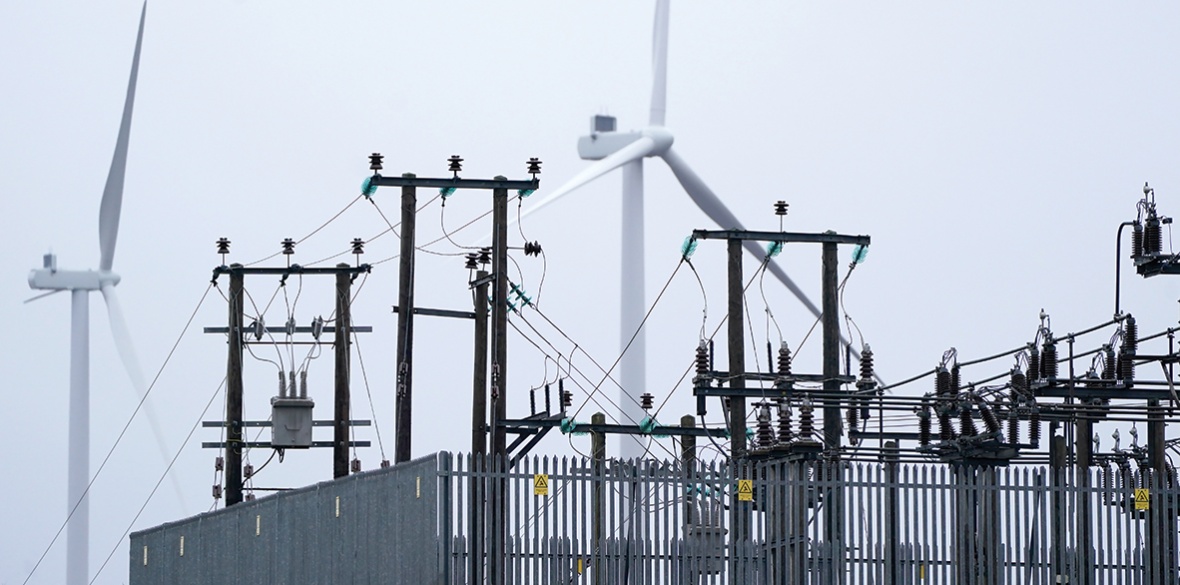This is the last article you can read this month
You can read more article this month
You can read more articles this month
Sorry your limit is up for this month
Reset on:
Please help support the Morning Star by subscribing here
IN BRITAIN, wholesale electricity prices are currently, irrationally, determined by the most expensive form of generation in the mix — currently predominantly gas — and consequently consumers are having to pay significantly more for energy generated from renewables even though it costs far less to produce.
This is undoubtedly galling for Scotland, which was the first nation in Britain to generate almost 100 per cent of its electricity from wind, solar and hydro processes.
In light of Russia’s invasion of Ukraine and Vladimir Putin’s weaponisation of gas supplies, this inequity has been exacerbated.
And this outdated coupling means consumers are at the whim of international fossil fuel markets. Because the gas belongs to the companies that extract it, it can be sold abroad, even in a crisis, to companies owned by the Russian, Iranian, Chinese, Norwegian and other governments who sell it back to us at a premium which we underwrite with our bills.
Another reason why electricity prices are so much more expensive than gas prices is that most taxes and levies are placed on electricity rather than gas and petrol. And adding to the cost to us, Britain subsidised the fossil fuel industries by £10.5 billion, compared to the £7.2bn spent on renewables subsidies in 2019.
A 2021 report by the New Economics Foundation estimated that Britain provided approximately £12bn annually in support of fossil fuels over the preceding five years. This despite solar and wind power subsidising the cost of gas to the tune of £39.2 million when wholesale prices were at their highest.
So no matter how much cheaper electricity is due to the ramping up of renewable generation, archaic pricing means that the consumer always pays a price determined by the highest oil bidders.
It was therefore not before time that, in 2022, the government expressed the intention to decouple energy bills from wholesale gas and electricity prices as part of a suite of “urgent” electricity market reforms supposedly to address this absurdity.
Then-prime minister Boris Johnson pointed to market reform that would move Britain away from a system where the price of energy is set by the marginal gas price, noting: “At the moment, one of the problems is that people are being charged for their electricity prices on the basis of the top marginal gas price, and that is, frankly, ludicrous … We need to get rid of that system. We need to reform our energy markets, as they have done in other European countries.”
Optimistically, Ofgem noted that, if brought in, reforms could deliver more than £10bn of savings per year by 2050. And indeed the government did announce plans to sever the link in a new Energy Prices Bill.
But in variance with European solutions where a price cap was applied to gas generation, the eventual British Act implemented a temporary “cost-plus revenue limit” in England and Wales, which capped the revenue that low-carbon electricity generators could earn. This was replaced in quick succession with a 45 per cent levy, again, a measure aimed at preventing these generators from benefiting unduly from high gas prices.
Surely such measures are self-defeating. Where is the incentive for customers to switch to cheaper, cleaner energy? How will this attract investors to a booming market?
Dr Catherine Caine from the University of Exeter Law School has analysed the impact of the Energy Prices Act and levy on specified low-carbon electricity generators.
The study, published in the Environmental Law Review, said: “There is now a real fear that the introduction of the 45 per cent levy could undermine investor confidence and could potentially lower the number of low-carbon generators who choose to develop in Britain, thus potentially hindering Britain’s ability to meet its 2050 emission targets…
“It seems, for now at least, that fossil fuels remain to be the driving force when it comes to energy prices, and that while the recently introduced measures aimed at tackling the prices of electricity generated from low-carbon sources will provide some comfort to consumers, more work is needed in the long term to reform electricity markets to sever the price link between gas and electricity.”
While the measures outlined above are touted to be temporary solutions to today’s challenges, it is evident that further efforts are required in the long term to reform electricity markets. This reform should genuinely decouple electricity prices from gas and create a system that gives customers a real choice and appeals to investors.
Only when people see that the bills of those with renewable energy are 10 times cheaper (the International Energy Agency concluded in its World Energy Outlook 2020 that solar power had become the cheapest electricity in history) will there be a wholesale exodus from dirty power. Only then are we likely to see our £10bn of savings per year.







